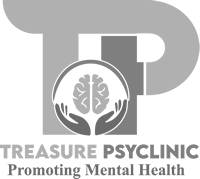
Mental health plays a vital role in our overall well-being, yet it is often neglected due to societal stigma, lack of awareness, or difficulty in accessing care. Seeking professional help can make a profound difference in managing mental health issues. This article explores the importance of professional mental health support and how therapy can help individuals lead healthier, more fulfilling lives.
Key Sections:
-
Recognizing the Signs of Mental Health Struggles:
Mental health struggles often manifest in different ways, including chronic stress, persistent sadness, anxiety, irritability, or fatigue. Other signs may include difficulty concentrating, withdrawing from social interactions, or changes in sleep or appetite. Recognizing these signs early can be crucial in preventing more severe mental health conditions. This section emphasizes how understanding the warning signs is the first step toward seeking help. -
The Benefits of Professional Therapy:
While it’s natural to lean on friends or family during tough times, professional therapy offers unique benefits. Therapists are trained to provide a non-judgmental space and offer scientifically-backed strategies for managing emotional distress. Therapy can provide individualized support, coping mechanisms, and treatment plans that are tailored to specific issues like anxiety, depression, trauma, or grief. It can also aid in personal development, stress management, and improving relationships. -
The Role of Different Types of Therapy:
There are several approaches to therapy, each designed to address different needs. Cognitive Behavioral Therapy (CBT) focuses on changing negative thought patterns, while psychodynamic therapy explores unconscious influences on behavior. Family therapy helps resolve conflicts within family systems, and group therapy offers communal support. Understanding these different modalities can help individuals choose the right form of support for their specific needs. -
How to Start Your Mental Health Journey:
Starting therapy can be a daunting step, especially if you’ve never been to a counselor before. This section will discuss how to choose a therapist, what to expect during the first session, and how to set realistic goals for your mental health journey. Topics such as confidentiality, session duration, and the importance of consistency will also be explored to help people feel more comfortable seeking support.
Conclusion:
Taking the first step toward seeking mental health support is a courageous act that can lead to profound change. Whether you are dealing with daily stressors or long-term mental health challenges, professional therapy can provide the tools you need to lead a more balanced, healthy life.





